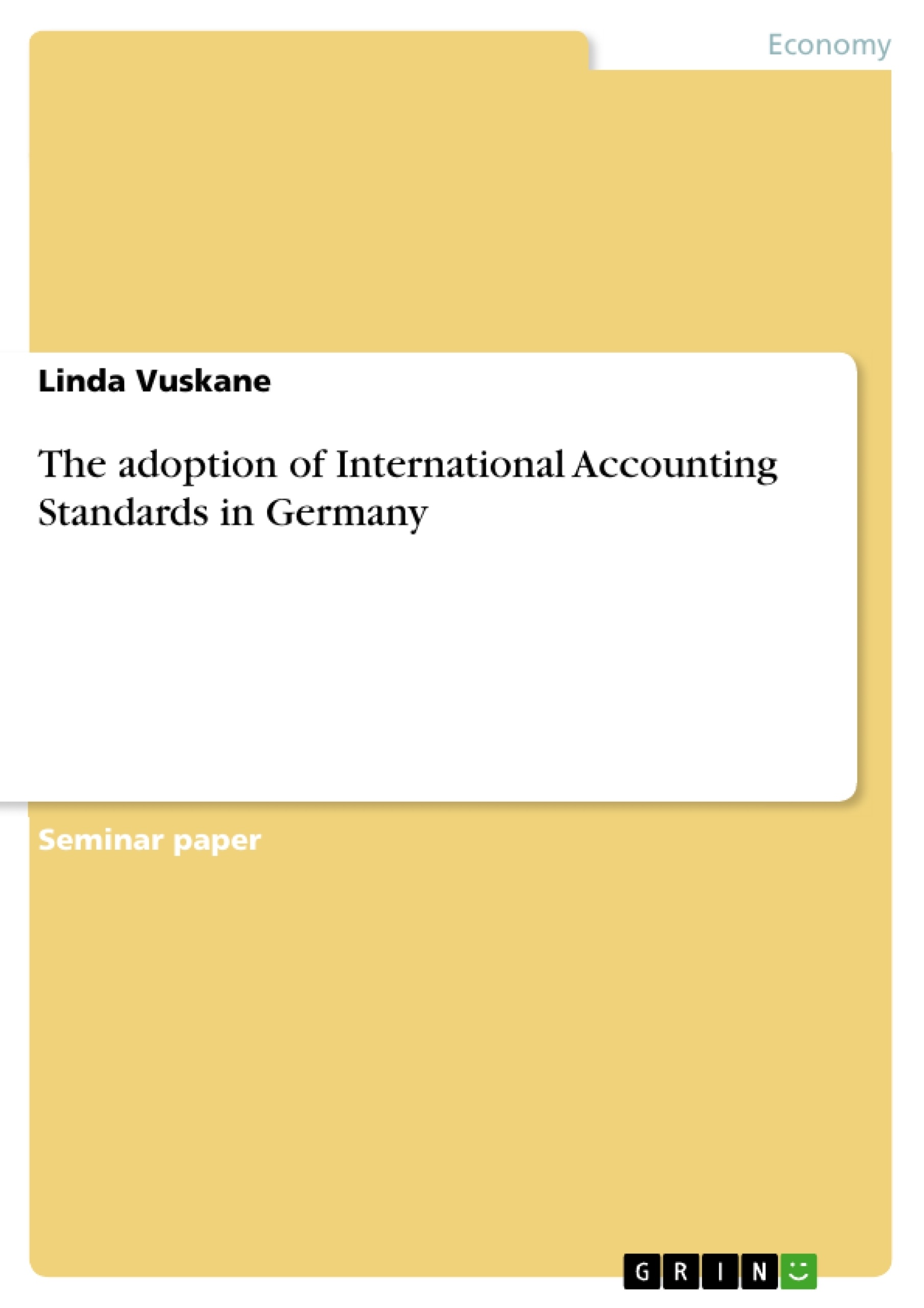It can be said that there is a strong movement towards global harmonization of accounting standards despite various national GAAP, particularly German, being substantially different. There are already great successes achieved, such as IAS adoption in EU and Australia, however, there is still considerable work that has to be done in order to not only impose international standards but also achieve better compliance and interpretation. With regard to Germany, reasonable attempts have been made to adopt IAS, however, there are many transition difficulties due to great discrepancies between IAS and HGB which need to be addressed in order to achieve successful transition.
Inhaltsverzeichnis (Table of Contents)
- Introduction
- Issues behind EU's decision to adopt IAS
- Transition process in Germany
- German national accounting system
- Main areas of transition difficulty
- Evaluation of success of transition
- Conclusion
- References
Zielsetzung und Themenschwerpunkte (Objectives and Key Themes)
This paper aims to provide an analysis of the harmonization process of accounting standards in Europe, focusing on the EU's decision to endorse International Accounting Standards (IAS) and the subsequent transition process in Germany. The paper explores the reasons behind the EU's adoption of IAS, examines the key features of the German national accounting system, and delves into the challenges and difficulties encountered during the transition.
- Harmonization of accounting standards in Europe
- The EU's decision to adopt IAS
- The transition process in Germany
- The German national accounting system
- Challenges and difficulties of the transition to IAS
Zusammenfassung der Kapitel (Chapter Summaries)
- Introduction: This chapter provides a brief overview of the paper's scope and objectives, highlighting the focus on the harmonization of accounting standards in Europe, particularly the EU's decision to endorse IAS and the subsequent transition process in Germany.
- Issues behind EU's decision to adopt IAS: This chapter examines the factors that led to the EU's decision to adopt IAS, highlighting the increasing globalization of markets, the need for greater transparency and comparability in financial reporting, and the desire to create a single EU-wide capital market.
- Transition process in Germany: This chapter delves into the transition process in Germany, focusing on the key features of the German national accounting system, including its legal framework, historical development, and unique characteristics.
- German national accounting system: This chapter provides a detailed description of the German national accounting system, highlighting its reliance on legal codification, the "congruence principle," and the importance of taxation principles.
- Main areas of transition difficulty: This chapter explores the challenges and difficulties faced during the transition process in Germany, including the complexity of IAS, the need to produce two sets of accounts, and the costs associated with the transition.
Schlüsselwörter (Keywords)
The paper primarily focuses on the harmonization of accounting standards in Europe, the EU's decision to adopt IAS, and the transition process in Germany. Key terms and concepts include International Accounting Standards (IAS), German Commercial Code (Handelsgesetzbuch, HGB), globalization, transparency, comparability, legal framework, "congruence principle," transition costs, and accounting ecology. The paper also explores the impact of different accounting systems on financial reporting, investment decisions, and the overall economic environment.
- Quote paper
- Linda Vuskane (Author), 2010, The adoption of International Accounting Standards in Germany, Munich, GRIN Verlag, https://www.grin.com/document/156388




